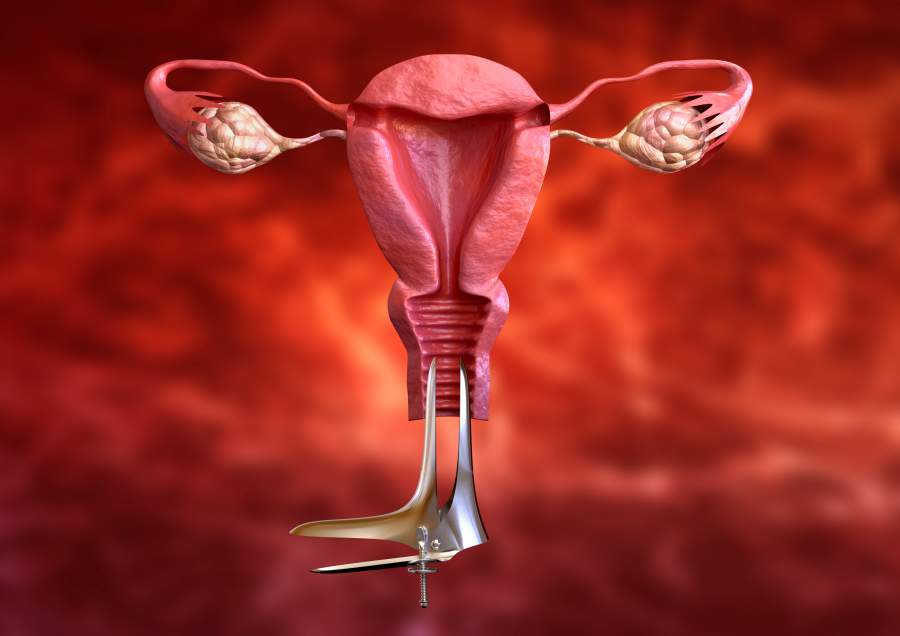
Only Three out of Ten Women Would Recognise Cervical Cancer symptoms, claim a latest medical research
18-07-2018 | Posted By: Chhavi | 2560 View(s)
The panacea for all health conditions is a regular health checkup. But a few people dread the thought of going to a health checkup because they fear what their health check-up report might reveal about their health. They think what if they have a health condition, and so they just don’t go for a routine checkup and never come to know what’s going inside their bodies until some major symptoms show. We all love to enjoy our lives, and when we are young, we think we are invincible. While it is ok to live life to the fullest, it is not at all right to be not aware of the symptoms and ignore symptoms that could potentially lead to a life-threatening disease. This is the reason why recent research carried out by YouGov is quite alarming: only three in every ten women would be able to recognise cervical cancer symptoms confidently.
Every year in the UK, around 3200 diagnoses of cervical cancer are made. According to Cancer Research, cervical cancer is the 14th most common cancer in women in the country. Even in India, the situation is not good. A recent joint study on cervical cancer prepared by ASSOCHAM-National Institute of Cancer Prevention and Research reveals that India alone accounts for one-fourth of the global burden of cervical cancers. India accounts for about 17 per cent of all cancer deaths among women aged between 30 and 69 years.
Recently, YouGov surveyed 1650 British women aged between 18 and 49 and asked them if they would feel ‘confident’, ‘not very confident’, or ‘not at all confident’ that they would be able to notice the symptoms of cervical cancer. The reports claimed that 64% of the women were ‘not very confident’ or ‘not at all confident’ that they could recognise the cervical cancer symptoms.

Even more alarming is that almost eight in ten (79 per cent) 18 to 24-year-olds women reported that they were not confident at all that they would recognise the symptoms of cervical cancer. People should not be casual when it comes to health. Women shouldn’t ignore the symptoms of cervical cancer and pay regular visits to a gynaecologist for a routine checkup.
What are the Major Cervical Cancer Symptoms?
One of the major symptoms of cervical cancer is abnormal bleeding during or after sex or in between periods. However, do not panic if you experience irregular bleeding because it doesn’t always mean you have got cervical cancer. But do visit a doctor if you experience this symptom.
Another major sign of cervical cancer that many people are not aware of is stomach pain and uncomfortable bloating. Some of the others symptoms of cervical cancer are sore legs, loss of appetite, pain during sex, unintentional weight loss, unusual discharge, extreme fatigue, loss of appetite, difficulty eating, and lower back pain.
Again I would like to say that don’t panic if you notice any of these symptoms because these can also be the symptoms of any other health condition. But do not ignore the symptoms, and consult a doctor right away.
Precaution is always better than cure. So you should go for a routine health checkup because it will help you detect health conditions, if any, at an early stage. Survival can be up to 90 per cent for those diagnosed with cervical cancer at an early stage. Cervical screening saves many lives each year by detecting changes in the cervix before they develop into cancer. Women aged 20 – 64 are advised to go for a cervical screening every year.

The After effects of Cervical Cancer Treatment
When treatment has finished, contingent upon the kind of treatment and the stage that the cervical cancer was in, you will no doubt feel some symptoms. Here is a couple, taking into account the three most normal medications: surgery, radiation treatment, and chemotherapy and the after-effects of Cervical Cancer Treatment
Surgery:
It requires investment to recuperate after surgery, and the recuperation time is diverse for every lady. You might be uncomfortable initially for a couple of days. But, the prescription can, for the most part, control the torment. Before surgery, you ought to talk about the arrangement for torment help with your specialist or medical caretaker. After surgery, your specialist can alter the arrangement if requires more help.
If you have surgery to evacuate a little tumour on the surface of the cervix, you might have cramping or another torment, die, or a watery release.
If you have a hysterectomy, the length of the doctor’s facility stay might change from a few days to a week. You might likewise encounter hot flashes, and menopause happens promptly.
It is basic to feel drained or frail for some time; you might likewise have bladder and inside issues. The specialist might limit your eating regimen to fluids, to begin with, with a continuous come back to strong nourishment. Most ladies come back to their typical exercises inside of 4 to 8 weeks after surgery.
Radiation treatment:
Reactions depend on for the most part on the dosage of radiation and the piece of your body that is dealt with. Radiation to the stomach area and pelvis might bring about sickness, spewing, looseness of the bowels, or urinary issues. You might lose hair in your genital region. Additionally, your skin in the treated region might get to be red, dry, and delicate.
You might have dryness, tingling, or blazing in your vagina. The radiation might likewise make your vagina smaller.
Patients are prone to end up exhausted amid cervical growth, radiation treatment, particularly in the later weeks of treatment. Resting is essential, yet specialists, for the most part, encourage patients to attempt to stay as dynamic as possible.
In spite of the fact that the symptoms of radiation treatment can be troubling, your specialist can more often than not discover approaches to assuage them. Patients who get outside or interior radiation treatment likewise might have loose bowels and regular, uncomfortable pee. The specialist can make proposals or request medications to control these issues.
Chemotherapy:
The reactions of chemotherapy depend on the particular medications and the dosage. The medications influence malignancy cells and different cells that separation quickly:
The reactions of chemotherapy depend on for the most part on the medications and the dosages the patient gets. What’s more, as with different sorts of cervical cancer treatment, symptoms fluctuate from individual to individual. For the most part, anticancer medications influence cells that separate quickly. These incorporate platelets, which battle the disease, help the blood to cluster or convey oxygen to all parts of the body. At the point when platelets are influenced by anticancer medications, patients will probably get diseases, might wound or drain effectively, and have less vitality. Cells in hair roots and cells that line the digestive tract likewise separate quickly. At the point when chemotherapy influences these cells, patients might lose their hair and have other reactions, for example, poor hunger, sickness, retching, or mouth bruises. The specialist might have the capacity to offer a prescription to help with cervical malignancy reactions. Cervical growth symptoms bit by bit leave amid the recuperation periods between medications or after treatment is over.
Biological treatments:
The cervical cancer symptoms created by Biological treatments differ with the sort of treatment the patient gets. These medicines might bring about influenza and other side effects, for example, chills, fever, muscle throbs, shortcoming, loss of hankering, sickness, retching, and loose bowels. Once in a while, patients get a rash, and they might drain or wound effortlessly. These issues can be serious, yet they leave slowly and gradually after the treatment stops.
So ladies keep a tab on your health- visit a gynaecologist regularly and go for a health checkup to keep diseases at bay. Stay healthy, stay happy!


